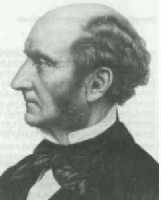This is a re-blog of an article that some people have found helpful on my old ‘Middle Way Philosophy’ blog.
Scepticism (or skepticism, US style) is potentially a big liberating factor in our lives, yet like most ideas that started off in a blaze of insight, it has become caught up in entrenched dualistic conflicts. All scepticism involves some degree of recognition of uncertainty about what others take to be true – but the crucial thing is how you then respond to that uncertainty. Pyrrho of Elis, the first Greek sceptic, was very probably inspired by Indian sources, and his approach contains many crucial elements of Middle Way thinking. Yet the overwhelming use of the word ‘sceptic’ today is that of a mere denier of a widely-held view on one topic: we hear much more about Climate Change sceptics and Euro Sceptics than we do about Pyrrhonian sceptics.
that started off in a blaze of insight, it has become caught up in entrenched dualistic conflicts. All scepticism involves some degree of recognition of uncertainty about what others take to be true – but the crucial thing is how you then respond to that uncertainty. Pyrrho of Elis, the first Greek sceptic, was very probably inspired by Indian sources, and his approach contains many crucial elements of Middle Way thinking. Yet the overwhelming use of the word ‘sceptic’ today is that of a mere denier of a widely-held view on one topic: we hear much more about Climate Change sceptics and Euro Sceptics than we do about Pyrrhonian sceptics.
I can identify at least four meanings of the word ‘sceptic’. Philosophy textbooks talk about the distinction between ‘global’ and ‘local’ scepticism – being sceptical about everything as opposed to being sceptical about only one or a few things. Then there is another distinction which I think is hugely important but widely unappreciated: between denying a position and remaining in balanced agnosticism. Put those two sets of distinctions together and you get an analysis of four types of sceptic:
- The local denier. This is by far the most common use of the term ‘sceptic’ at present. It refers only to people who disagree with another position and have a definitely contrary position. Such ‘scepticism’ is often applied to revelatory religious belief, for example, or to a public issue like Climate Change. Such ‘sceptics’ take advantage of uncertainties in the position they are opposing, but are almost never prepared to recognise the often equal degree of uncertainty in their own position.
- The local agnostic Just occasionally, scepticism about a particular issue does lead to a genuine open-mindedness in which the uncertainties of one’s own position are also appreciated in relation to that issue. This is the case, for example, with agnostics about God who have not yet recognised the same degree of uncertainty in many other issues. However, such agnostics suffer from a cultural prejudice against agnosticism in the West, which depicts agnostics as wishy-washy and indecisive. On the contrary, agnosticism, even just about a single issue such as God, often requires a fair amount of courage.
- The global denier This is the belief that because all positions are uncertain, therefore they should all be definitely denied. Following the assumptions of David Hume, most western philosophers since have wrongly interpreted Pyrrho in this way: but in the ancient world this view was represented not by Pyrrho but by his opponents – ‘Academic’ sceptics such as Carneades. I think Hume was right in thinking that nobody could seriously and practically hold this position as though they meant it, because it is impossible for us to live our lives without some beliefs about the world around us. It is also self-contradictory, because global scepticism is itself a belief to be denied. The problem was just that Hume thought that was all there was to scepticism.
- The global agnostic This is the belief that there is uncertainty about all possible beliefs, and that uncertainty should lead us to hold all beliefs provisionally to the extent that we can justify them through experience. This is the view that I hold, or at least aspire to hold, myself, and that I think is broadly the most helpful interpretation both of Pyrrho’s scepticism and of the Buddha’s Middle Way. One of its implications as I see it is that we should reject dogmatic views that cannot be held provisionally – what I call metaphysical beliefs. So, for example, you cannot hold the belief that God exists provisionally – you either believe it or you don’t. Nor can you hold the belief that God does not exist provisionally. So it is essential to remain determinedly agnostic about God’s existence, whatever the cultural pressures towards one side or the other. Far from being impractical, as Hume depicted scepticism, this kind of scepticism is deeply pragmatic, as it clears the ground for beliefs that we can justify and act on only in experience and removes delusions that are likely to interfere in our effectiveness when acting in the world.
I don’t think that there is one essentially right way to use a word, or that older or ‘original’ ways are necessarily better. Nevertheless, for practical reasons, I lament the decline of scepticism, firstly at the hands of Hume, and then more recently at the hands of the scientific naturalists, who have tried to appropriate both scepticism and critical thinking to support approaches that are not philosophically even-handed. It seems that the understanding of scepticism even amongst those who count themselves as sceptics is haunted both by the idea that global scepticism is impossible and by the assumptions that you have to be naturalistic to apply scepticism. For example, to quote from the ‘About us’ section of the Skeptic magazine website:
“Skepticism has a long historical tradition dating back to ancient Greece, when Socrates observed: “All I know is that I know nothing.” But this pure position is sterile and unproductive and held by virtually no one. If you were skeptical about everything, you would have to be skeptical of your own skepticism.”
That all depends on how you interpret Socrates. For some reason the idea that we don’t have to make claims about truth or knowledge, but could accept just degrees of justification for provisional beliefs, doesn’t seem to be on the horizon of such self-identified sceptics. It is just assumed that knowing nothing requires that you also believe nothing – which seems obviously false, since knowledge is normally defined as justified true belief, not just as belief. We can maintain provisional beliefs with a degree of justification without claiming that they are true. Scepticism itself can also be part of a provisional framework adopted for practical reasons.
The same source goes on:
“Modern skepticism is embodied in the scientific method, which involves gathering data to formulate and test naturalistic explanations for natural phenomena. A claim becomes factual when it is confirmed to such an extent it would be reasonable to offer temporary agreement. But all facts in science are provisional and subject to challenge, and therefore skepticism is a method leading to provisional conclusions. Some claims, such as water dowsing, ESP, and creationism, have been tested (and failed the tests) often enough that we can provisionally conclude that they are not valid. Other claims, such as hypnosis, the origins of language, and black holes, have been tested but results are inconclusive so we must continue formulating and testing hypotheses and theories until we can reach a provisional conclusion.”
I applaud the evident intention of provisionality, and of balanced testing in relation to experience here, but such scepticism cannot be even-handed when it incorporates a prior filter of “naturalistic explanations for natural phenomena”. It is being assumed in such an approach that there is a “nature” with universally consistent laws (usually assuming physicalism and determinism) that are open to scientific investigation, and that “supernatural” explanations can be ruled out from the start. The requirements of public reproducibility in conventional scientific method also rule out from justified provisional belief all areas of individual experience that are not open to that kind of testing.
So this kind of scepticism, however much it may try to assume the mantle of Pyrrho and Socrates, is selective and local: it does not subject its own assumptions to sceptical scrutiny. Its naturalism also means that it slips into denial of supernatural phenomena from the start. I am not recommending belief in supernatural phenomena – but “natural” phenomena in the sense of those following absolute known universal laws which rule out the supernatural are equally beyond our experience. Thus I find this appropriation of scepticism by scientific naturalists misleading.
However, my reasons for preferring a global and agnostic understanding of scepticism are only based on a provisional understanding of the greater usefulness of this wider approach. Scepticism is a powerful tool for overcoming delusions, but only if it is used even-handedly rather than selectively. Used selectively it is all too often a tool of dogma that actually has the effect of preventing us from facing up to conditions, because it seems to effectively shoot down one side whilst leaving the other standing. It is no wonder that many people are unnerved by scepticism – it is powerful – but it is for that very reason that we need to use it with great care.


